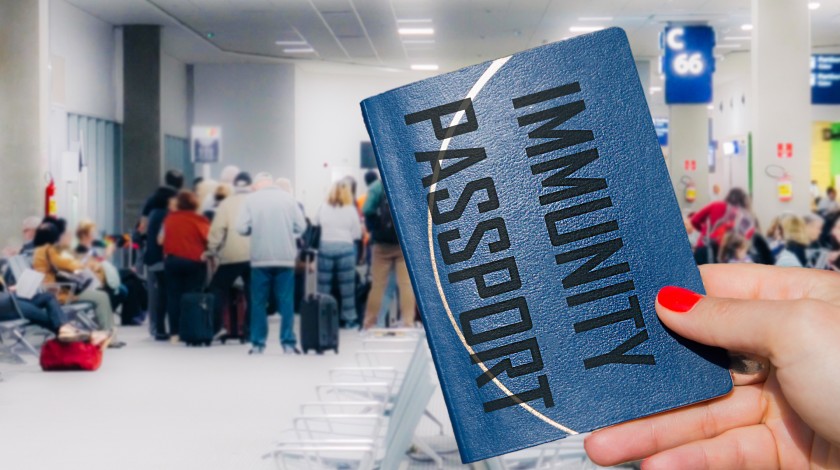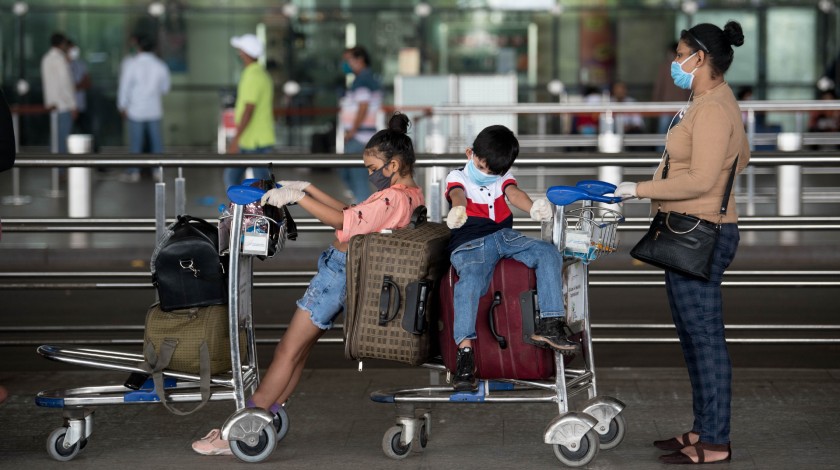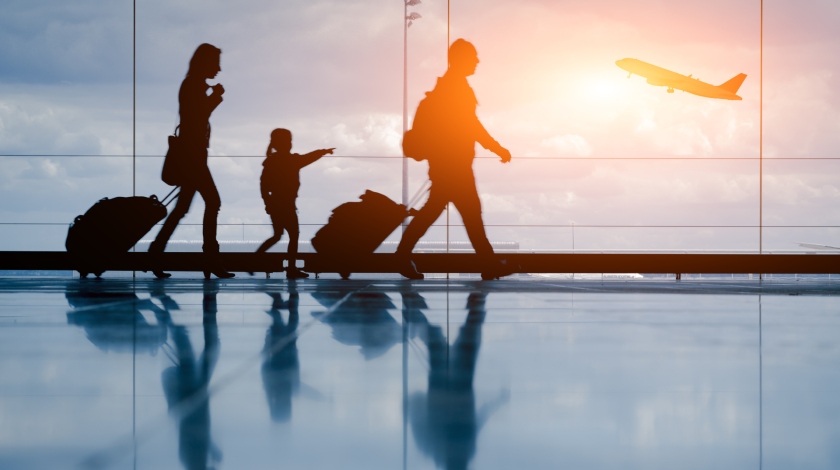Photo: shutterstock
Reading Time: 5 minutesThe COVID-19 pandemic has changed everyone’s lives in one way or another. Aside from spending weeks or even months in lockdown, there will also be long-term consequences, and changes to the way we travel.
As the borders are slowly reopening and restrictions are lifting, millions of people are starting to look at holidays abroad once again. This raises a number of questions, like what will the future of air travel look like and what should tourists expect as they pack their bags to visit other countries?
The short answer is that nobody knows for sure yet. The travel industry is recovering in stages, and it will really depend on the country and region that you wish to visit. Each of them will have different requirements, so you will have to check whether you can enter the country of interest and if you will be required to provide a health certificate or accept a two-week quarantine scenario.
Therefore, planning your holiday will be crucial if you want to avoid additional headaches or even getting stuck in a foreign country.

Since the aviation industry is going through a significant crisis and most flights have been cancelled, many companies are closing or are experiencing a significant decline in travel demand and revenue.
According to passenger data from the American TSA, the number of daily flights is already climbing, reaching over 700,000 flights per day compared to around 100,000 in April.
As air travel is trying to get back on its feet and accelerate growth, companies are taking new safety measures to reduce the risk of contamination. Travellers are experiencing changes that will most likely have lasting effects even after this pandemic. These are some of the most significant changes that will influence what the future of air travel will look like.
Face Masks Will be Required on Board
While it may not be mandatory to wear a face mask in public or at the airport in every country, airlines can require you to do so on board. Studies show that wearing a simple face cover can help prevent the virus from spreading from one person to another, and they are not willing to take risks on their aircraft.
Airlines like British Airways, Virgin and many others across the globe are asking passengers to wear face masks on board aircraft. The crew members are required to do the same and most airlines even provide their own safety kits, with the face masks inside. In some cases, airlines are saying that they will ban the passengers that refuse to do so. Wearing a face mask is becoming more common, so that it might become the new norm in the future of air travel.
Stricter Cleaning Routines
Airlines have also changed their cleaning routines, to help prevent the spread of viruses. Cleaning routines have evolved from simply wiping down surfaces with detergents, to electrostatic fogging with disinfectant before every flight.
Hygiene has been one of the most important weapons while fighting the virus, and while it may not be efficient or even necessary to do this before every flight after the pandemic has ended, people can feel safe knowing that it’s being done right now when it matters most.
A Passport Might not Be Enough
Under normal circumstances, travelling with a passport and a valid visa would allow you to enter most countries. Some countries though, may require you to present a certificate of immunity or vaccination once vaccines are available. This could be a logical step for countries who managed to get their own outbreaks under control and are wary of travellers from high-risk areas.

Certain countries will also most likely put limitations on the ‘valid reasons’ for entering the country. Leisure, for example, may not be a good reason to travel, whereas business meetings that have an economic benefit may get you in a lot easier. This may also mean that travellers could require a temporary visa or other documentation before travelling. It’s wise to always check the requirements a few weeks before you plan to travel.
There Will Be More Checkpoints at the Airport
When we look at countries that have managed to get their outbreaks under control, like China, Singapore, and South Korea, their biggest worry is now that people entering the country may start new infections. South Korea as an example, mandates a 14-day quarantine for all persons travelling to the country from high-risk areas (like Europe and the USA) and whoever doesn’t have a permanent residence is sent to an isolation ward.
Manufacturers of infrared cameras are seeing higher demand, especially now that lockdowns are easing and we start to travel again. Countries will introduce more checks at the border, including health checks like temperature measurement.

Hand Sanitisers Will Stay
Over the past few months, there have been viral videos of travellers wiping down their surroundings with disinfectant wipes, and while these people may be taking hygiene to the next level, it is an important topic and one that may well change how we travel in the future.
Even though not all of us will be cleaning our own seats on the plane, what we will see is an increased use of hand sanitisers and similar products. These products will have to be carried in the carry on luggage and will be limited by the rules for carrying liquids on flights.
On long haul flights this may be too restrictive and since changing the laws and regulations internationally would prove difficult, airlines may take a leading role by offering their passengers hand sanitisers on long haul flights as part of the package.
Domestic Travel Will Increase
Travellers will likely be wary of going too far from home, especially if they live in a country that has a good grasp on the pandemic right now. Domestic travel is likely to recover faster than international travel, and that means that the plane is not necessarily the most efficient or cost-effective way to travel.
As we see more high-speed connections, we may very well see trains claim a bigger share of the market, since they are, at least when it comes to short distances, more cost-effective and environmentally friendly.
Travelling Private Will Become More Popular
While many wealthy people had previously chosen business class on commercial planes, they may now choose to fly privately instead. It may be a bit more expensive, but the benefits range beyond luxury and comfort.
Since the beginning of the pandemic, the demand for private jet flights has risen, mainly due to health and safety private flights can offer.
Customers can avoid crowds and direct interactions, as there is no need to wait in long queues at the airport, and the customer decides who to travel with. The length of the journey is also shorter since most of the private flights are direct and there’s no need for transfers.
Even though many aviation companies have been facing difficult times over the past months, Chapman Freeborn, the global aircraft charter specialists, have stayed busy. The demand for cargo and private flights has increased as the commercial sector declined, creating new opportunities.
The future of air travel remains unclear, and many people wonder whether it is safe to travel abroad. One thing that we know for sure, is that we will have to adjust to change. From longer security checks to strict hygiene and potential increases in flight prices as the industry tries to recover. Health and safety will become the priority that will dictate new rules and changes to how we travel.

